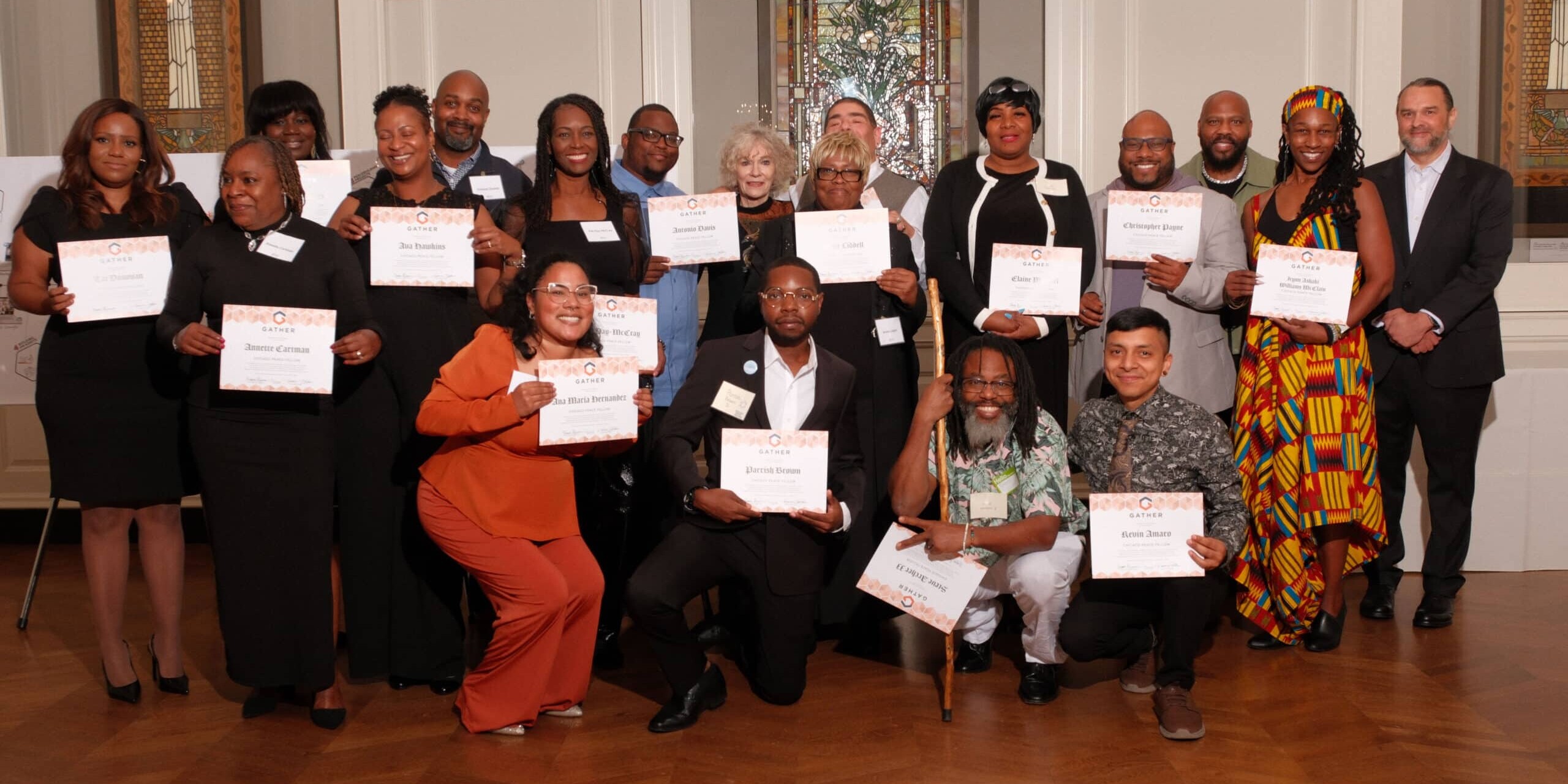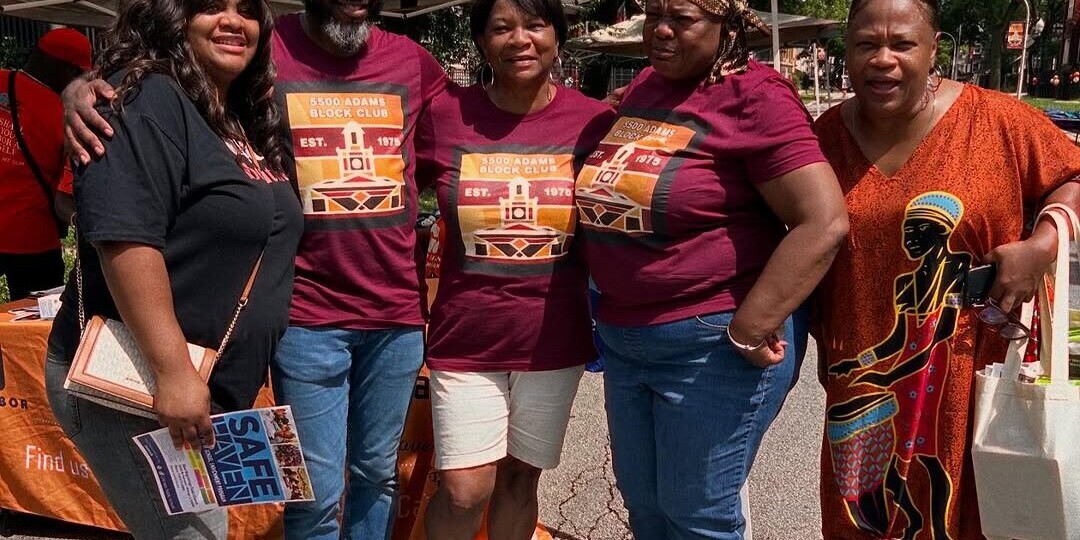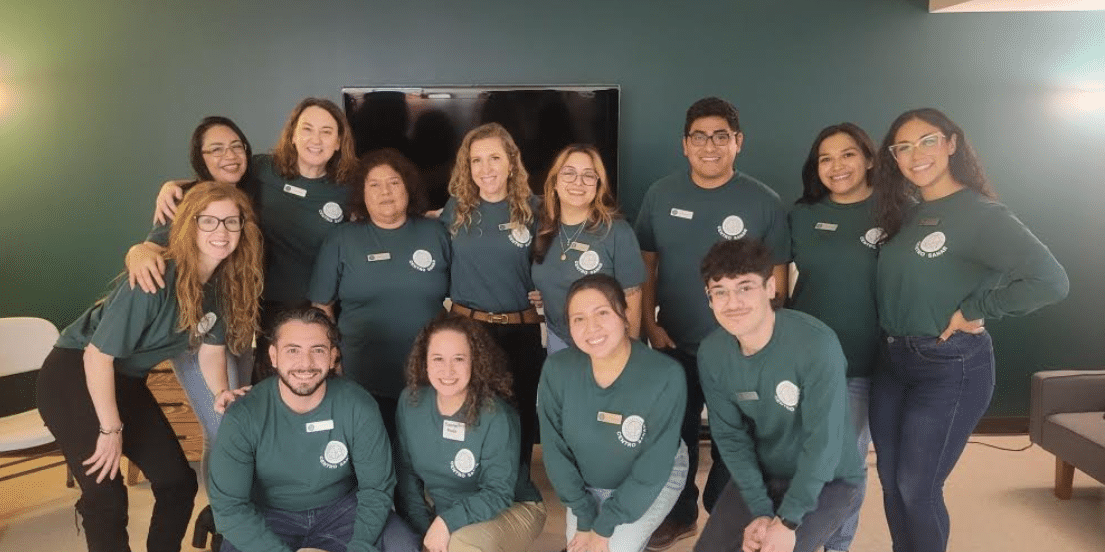On Friday, March 22, 2019 the Goldin team and the Chicago Peace Fellows attended an in-person workshop hosted by the Violence Recovery Program at University of Chicago Medical Center. Executive Director of the Goldin Institute Travis Rejman began with some opening statements to keep in mind during the workshop: “In addition to the wisdom this team can share about violence recovery and prevention, their work provides an illuminating insight into what it takes to work on a wicked problem where you need to engage such a wide variety stakeholders, including victims of violence, doctors, administrators, families, community partners, law enforcement, case workers and spiritual care providers.”
[quote]”Social issues are adaptive challenges; there is no check list on how to solve them so you need a different mindset and different lens. This is a great place to launch our conversation.” — Travis Rejman[/quote]

The University of Chicago Medical Center started the Violence Recovery Program (VRP) on May 1, 2018, with the goal of treating not only primary trauma in victims of violence, but secondary trauma as well. In addition to treating serious injuries such as blunt trauma, gunshots, and stab wounds, the team also provides what they call “psychological first-aid,” which is compassionate guidance for family and friends of the victims.
The recovery team shared that people who are impacted by violence are more likely to be a victim or perpetrator of violence after they are released from the hospital and the team is to set up to disrupt that cycle. The Trauma Center will see 3,000 trauma causes this year, and almost 40% of those will be due to intentional violence.

The Peace Fellows were then led in a discussion by Senior Advisor Gabe Gonzalez, who asked them to analyze how the work of the VRP could provide insight into their own service to the community.
Together, the VRP team and the Peace Fellows discussed approaches to tackling adaptive challenges in their communities. Many agreed that proper resources were not often at the community’s disposal. Some of the Fellows as well as the VRP expressed a need for more staff and the need for self-care for their own teams.

Conversely, the team was able to share some of the assets that do exist in their communities. Diane Latiker of Kids Off the Block mentioned the importance of schools in her neighborhood. Dr. Pamela Phoenix explained that the parents were a huge asset in her work. Jamila Trimuel praised the support of black women and young professionals.

The Peace Fellows are tasked with creating a project over the summer that will promote peace and encourage violence prevention at a time when violence is usually at its peak in Chicago. The support of a hospital-based violence intervention program at a major medical center in the city could be crucial to the impact of projects like these, and it could prepare the Violence Recovery Program to take further steps in bridging the gap to create bonds with the leaders of Chicago’s communities.
Many thanks to Leif, Mark, Bruce and Dre of Violence Recovery Program team for hosting us and for sharing their insight into this new model of violence recovery within the hospital system.




